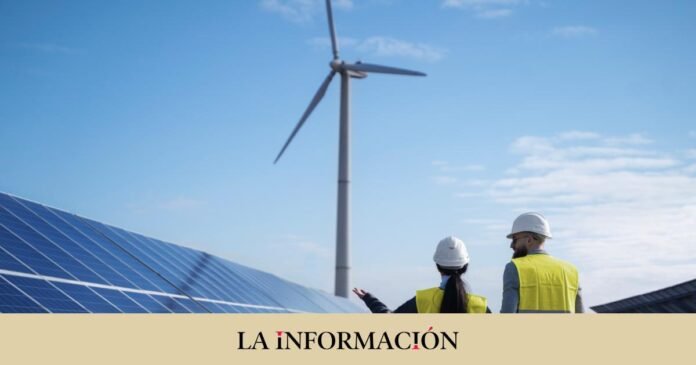The energies do not enter into making political assessments, but they defend that the Government that emerged after the 23-J elections (if any agreement is finally reached) should continue promoting the decarbonization of the economy and its competitiveness. In the opinion of the employers’ association of the large electric companies Aelec, which brings together Iberdrola, Endesa and EDP, “sustainability and profitability must go hand in hand”, substituting fossil fuels for renewable energies and reinforcing industrial decarbonisation.
“We ask that regulatory stability be maintained to allow further progress in the energy transition through the promotion of solar energy,” they point out from the Spanish Photovoltaic Union (UNEF). After the elections on Sunday, a period of negotiations and pacts opens that can carry out the formation of a government after the summer or face a repetition of elections before the end of the year. Faced with this scenario, Juan Virgilio Márquez, general director of the Wind Power Business Association (AEE), urges “maintaining a positive inertia” of wind development and expediting its use in the electricity ‘mix’.
The wind is key to further reducing the price of electricity, achieving greater independence from the outside and advancing in the reduction of polluting emissions. From the AEE they also call to continue watching over the wind industry, which continues to manufacture in Spain and export to other markets. Thus, consider that political stability and regulatory certainty are critical to continue attracting investment, not only for the wind sector itself but also for the new electricity-consuming industries that can be installed in Spain.
Develop the PNIEC
“For the sector, having visibility about this new electricity demand that is arriving is key. The new Government must resume critical issues as soon as possible, such as the development of the regulation of offshore wind or the optimization of administrative procedures, and others that must continue to be defended tooth and nail, such as the design of the Net-Zero Industry Law (NZIA) that allows us to maintain the competitiveness of our factories in the global market”, insists Juan Virgilio Márquez.
In addition, the negotiation and final approval by the European Commission of the new National Integrated Energy and Climate Plan (PNIEC 2023-2030), currently in public consultation, will also be the responsibility of the new executive. The country’s level of ambition is clear by 2030 and the path to achieve it will be one of the main challenges for the legislature. The goal is to reach 62 GW of wind power and 76 GW of photovoltaic solar power by the end of the decade. “For all of this, because the path, its direction and its speed are traced, we consider that it is everyone’s responsibility to achieve the objectives for renewables as a country project, regardless of the resulting government,” he points out.
“The mission of any government, regardless of its color, is to generate certainty”
On the other hand, from the Spanish Association of Petroleum Product Operators (AOP) they value two issues regardless of the electoral results. Governance, on the one hand, and solving pending energy challenges, on the other. “The mission of any government, regardless of its color, is to generate certainty, not only for citizens, but also for companies,” they add. In this way, and along the same lines as the rest of the associations, they describe as “fundamental” the fact of attracting new investments and maintaining existing ones, “especially in a sector that is in full transformation to complete the energy transition”.
AOP demands that the next Executive take measures to combat VAT fraud and develop a Roadmap towards Ecofuels. as they have been warning from the sector itself for some time. In this context of operations between companies both within Spain and at the European level, the Spanish ‘antiopas’ regulation, recently renewed by the Executive, also comes into play, which allows a public veto to certain investments in companies that are considered strategic for the sector in which they operate, and in the energy sector, almost all the large ones are.
However, the most important challenge that whoever leads the government’s energy area will have to face if the blockade is ended will be the reform of the wholesale electricity market in the European Union. The lack of a sufficient majority in the coalition of lefts and right-wings maintains for the moment an acting government in the hands of the PSOE, pending an agreement with the Basque and Catalan nationalist and pro-independence parties, who are not going to sell their support cheap -as they have already announced-.
The experts consulted by La Información rule out that there could be a sudden stop in the amount of pending European funds, given that this process develops autonomously based on the recovery plan presented to Brussels, which will not suffer clear changes as long as there is no government formed in Spain, of one type or another.

